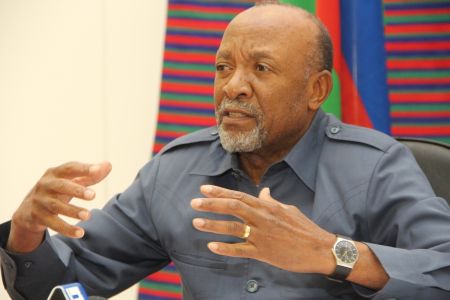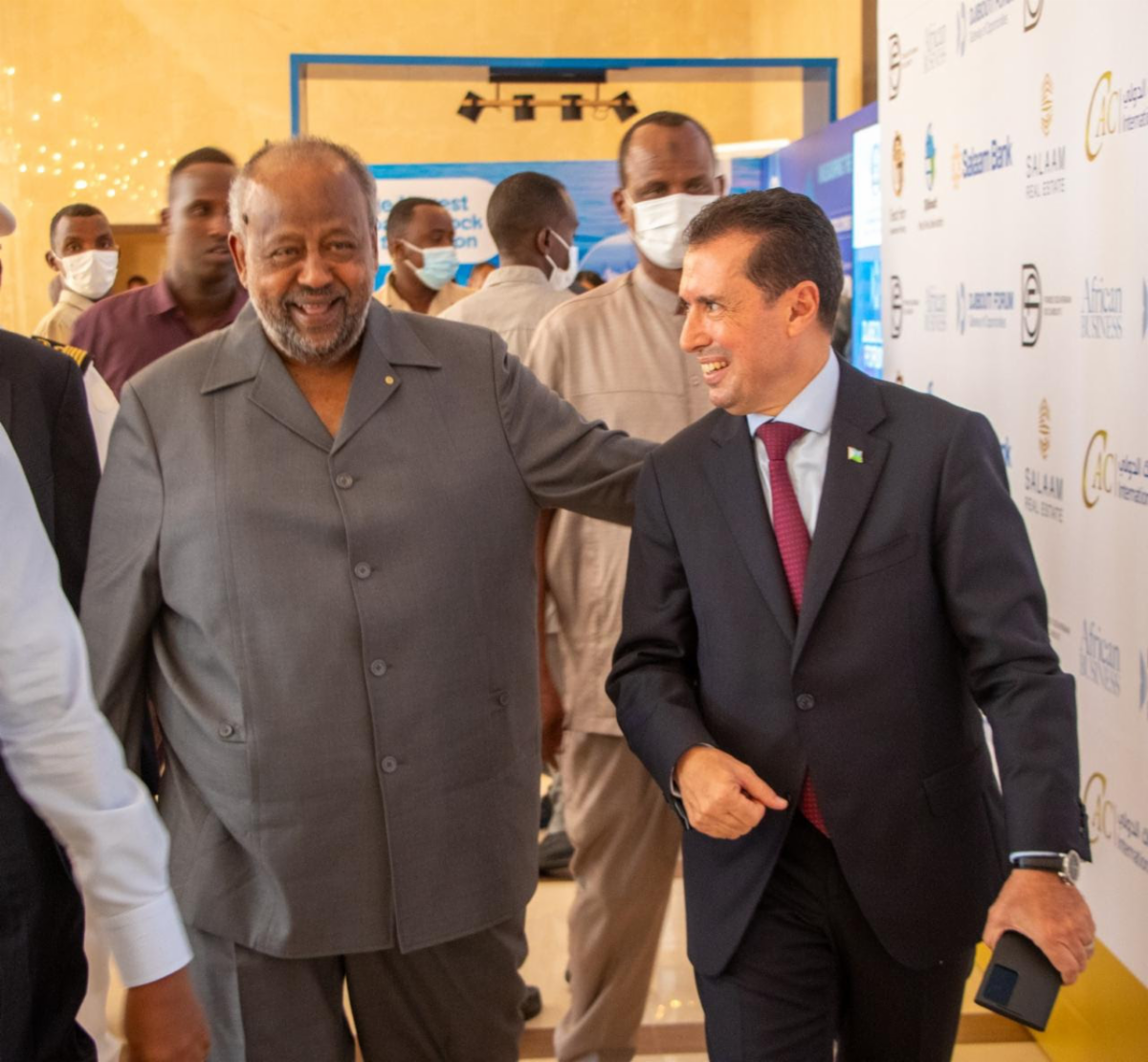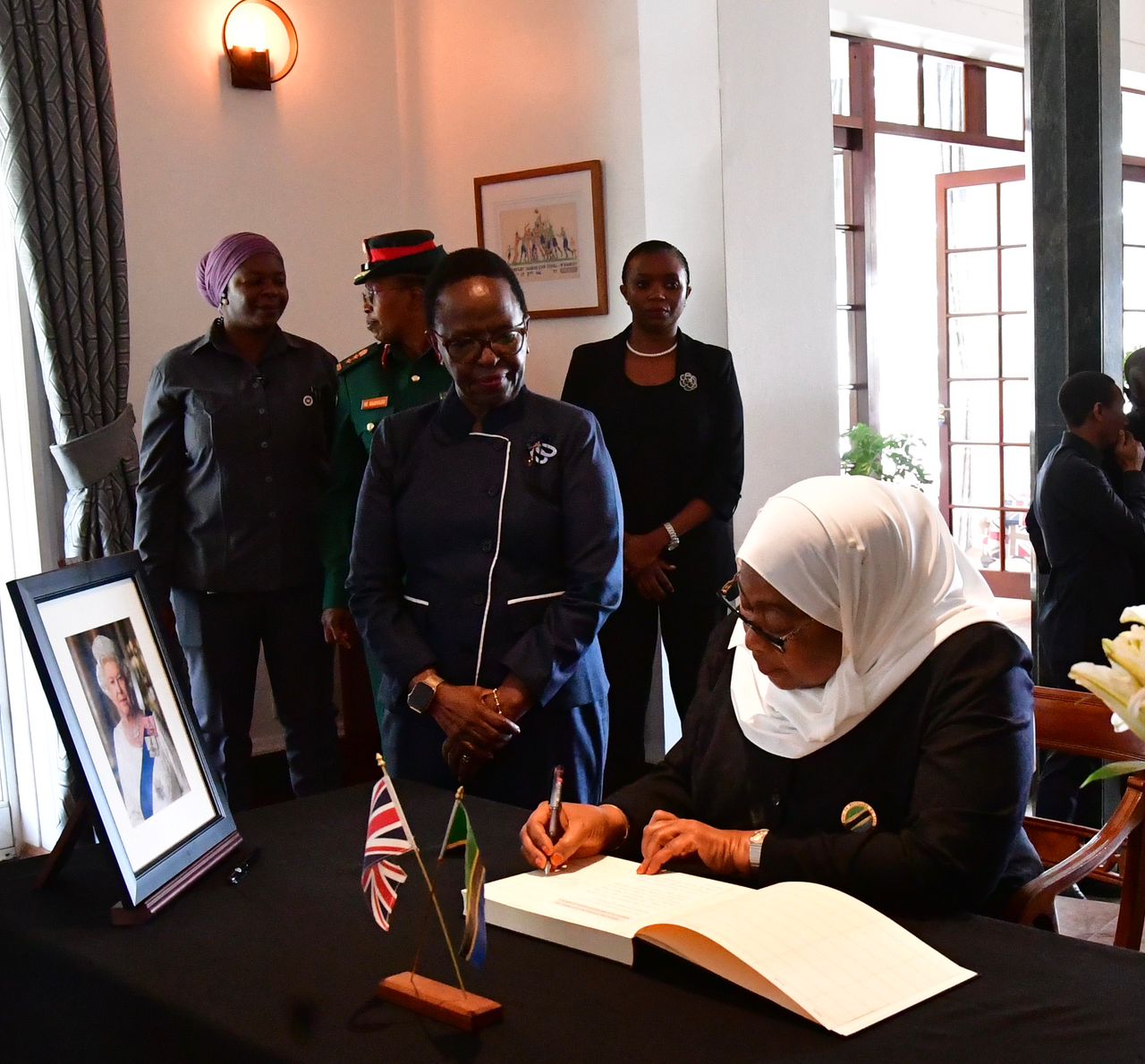Namibia: Second Land Conference to go ahead despite boycott
September 28, 2018
By Andreas Thomas
[caption id="attachment_52500" align="alignleft" width="450"]

Vice-President Nangolo Mbumba[/caption]
Windhoek – The Second National Land Conference planned from 1-5 October, 2018 in Windhoek will go ahead as planned despite mass withdrawal by some invited stakeholders, says Vice-President Nangolo Mbumba.
Mbumba told media ahead of the land summit that the government has done all it can to accommodate their demands and their boycott will not change anything.
Several pressure groups that consist of traditional authorities, civic societies and political parties have pulled out of the important gathering that aimed to resolve the unending land question in the country.
They have expressed their displeasure after a tranche of government documents got leaked to the public that brought to light a predetermined resolutions and outcome of the conference. They said this dissipate any chance for democratic fruitful contributions to the resolution of the land question.
“The second land conference is a sham not worthy of attending by patriotic Namibians who are committed to resolve land question justly and equitably,” says Vekuii Rukoro, the paramount chief of the Ovaherero Traditional Authority said on Wednesday.
The official opposition - Popular Democratic Movement (PDM) has also announced its boycott of the conference.
PDM leader McHenry Venaaini on Thursday cited the refusal by the Ministry of Land Reform to release the list of resettlement beneficiaries over the past 28 years, which he said creates unwarranted suspicions, and undermines the fundamental ethos of transparency, and accountability.
“It further deprives participants the right of informed consent, to have a constructive, and meaningful contribution to the debate lacking in the facts on that list.
It further erodes confidence, and trust in government engagements or operations which as the official opposition are mandated to provide the required checks and balances. We as the official opposition, find it extremely difficult to render our co-operation to such an activity,” Venaani said.
Over 500 delegates have been invited to take part in national dialogue with the main objective to review the progress made regarding land reform over the past 28 years.
However, many key stakeholders especially from the Ovaherero, and Nama communities that historically lost their ancestral land during colonial periods were not invited.
“The deliberate omission of respected traditional leaders not currently recognised by the current government, but who were participants in the first 1991 National Land Conference from communities who are direct victims of ancestral lands dispossession due to Imperial German and South African ancestral lands seizures and dispossession,” Venaani fumed.
The Affirmative Repositioning (AR), a pressure group that is fiercely advocating for affordable land and housing in urban areas, was also excluded, and only got invited at the eleventh hour.
The AR movement leaders on Thursday announced their decline of the government invitation to attend the conference. Since its formation over four years ago, the movement comprising of young Namibians mostly professionals, has been a pain in the government fresh over slow pace to resolve housing crisis in the country.
Urban land in Namibia is a luxury that can only be afforded by the wealthy. As a result, majority of urbanites, including capital Windhoek leave in informal settlements marginal of basic amenities.
According a government discussion paper that leaked prior to the summit, the urban land crisis was only accorded three paragraphs.
AR leaders expresses their displeasure in statement that: “As was the case with 1991 land conference where urban land was not discussed, the next week conference is set to sideline the matter of urban land, a more serious concern than farms that are owned by absentee landlords.
“During regional consultation conferences, urban land was not even a theme. We forced it on the agenda of the Khomas Regional Consultation resulting in more than 20 resolutions on urban land as contained in the Khomas report.
“The leaked government discussion paper, which is purported to have been drafted from regional reports, only has two unclear and meaningless recommendations on Urban Land. In the document, urban land is a mere half a page”.
They added that: “That more than 70% of the delegates are government officials, that SWAPO Members of Parliament, Governors, regional representatives were instructed not to have their own opinions but follow what SWAPO SG referred to as a “united stand going into the conference” and “consensus” evidently indicates that what is scheduled to take place is a choreographed and predetermined gimmick”.





























